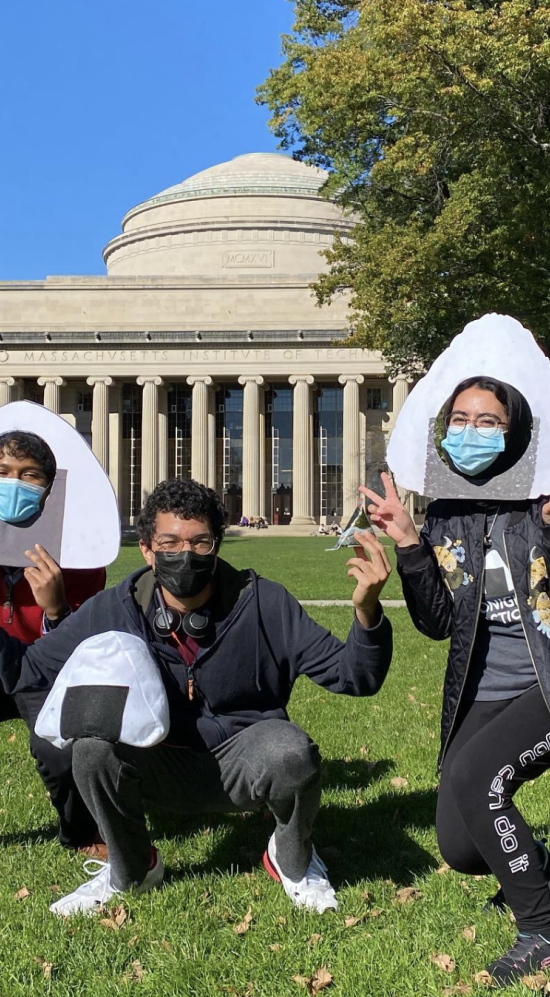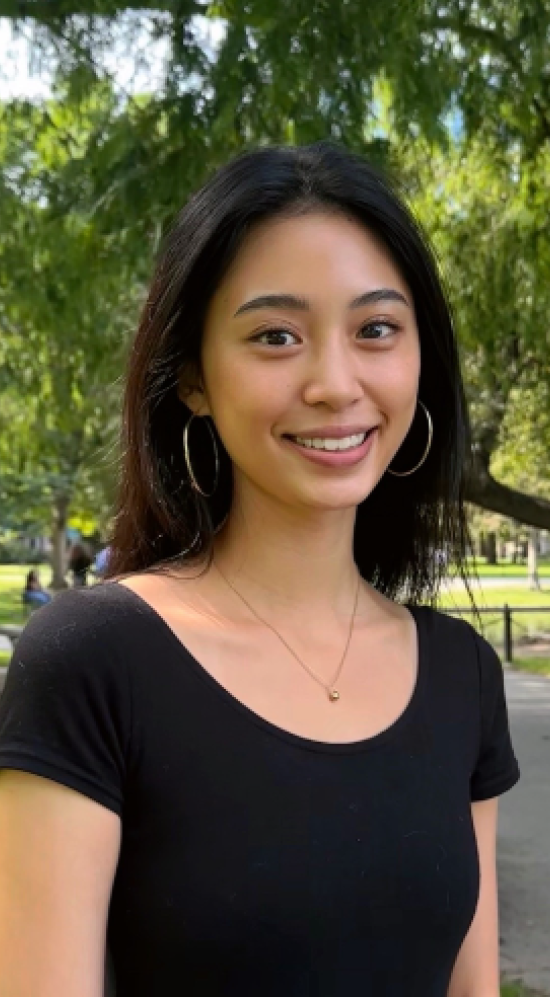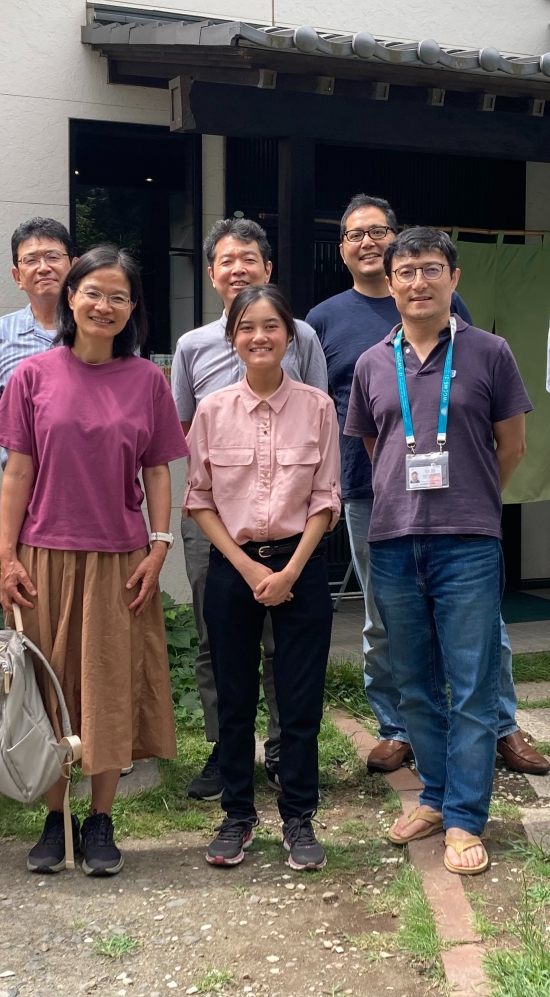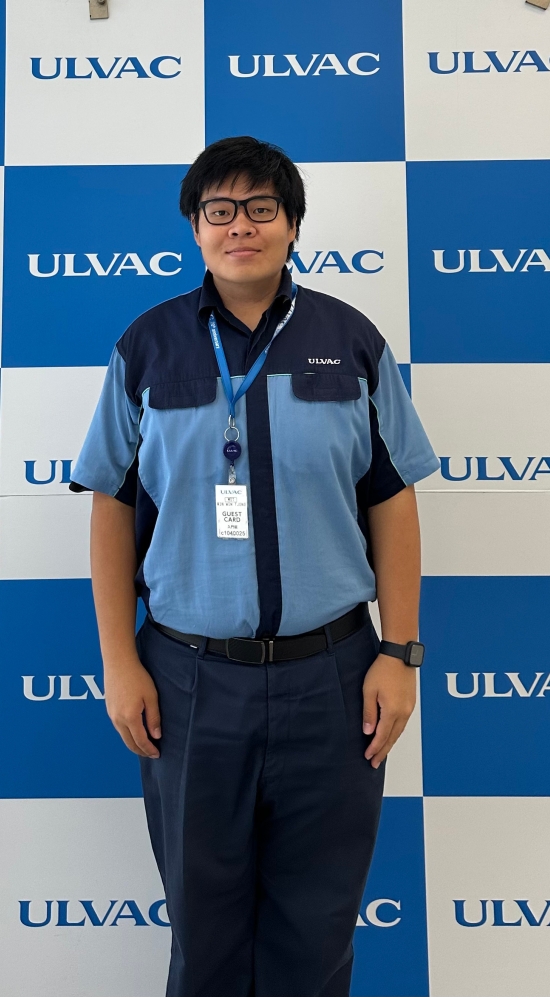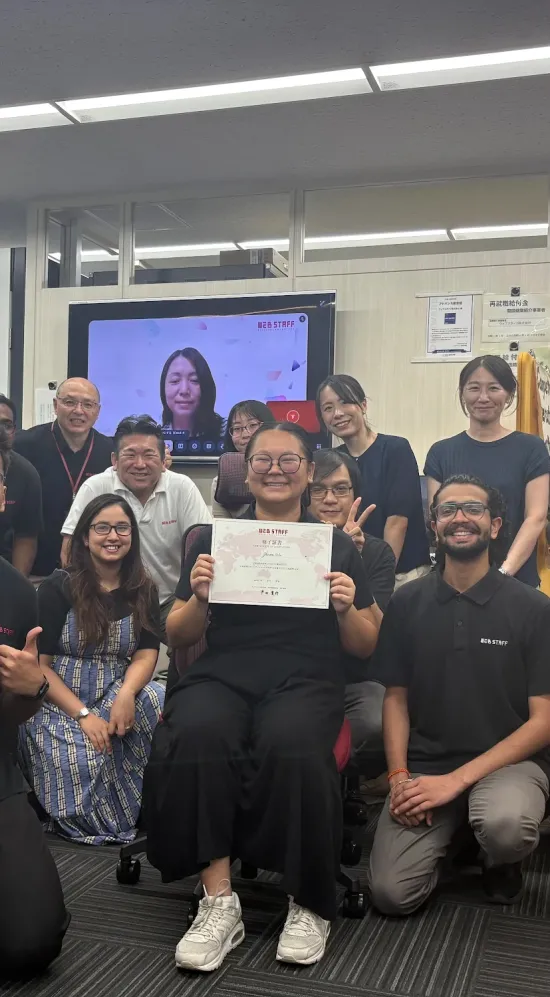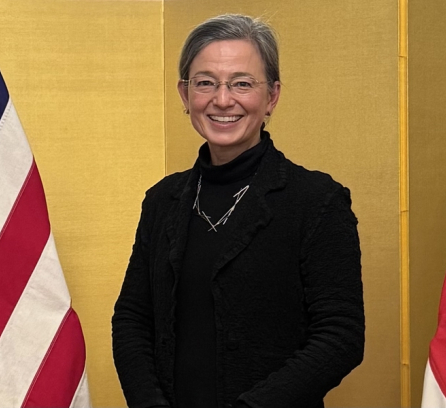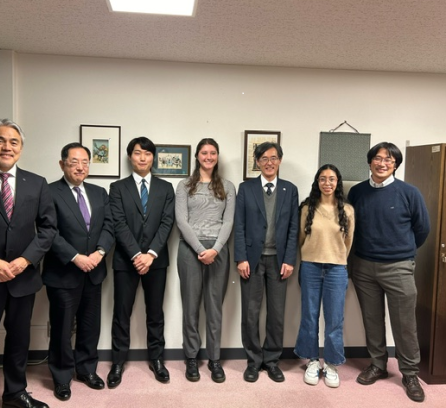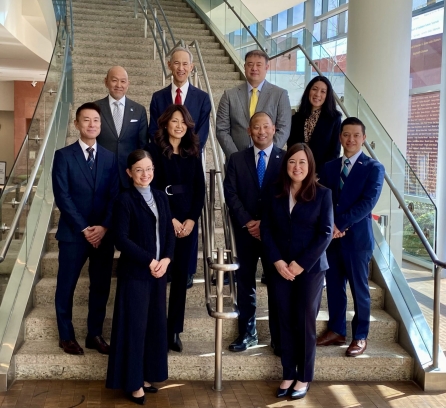The MISTI Japan Program empowers MIT students and faculty to advance knowledge and solve the world’s great challenges by connecting them with leading researchers, companies, and other partners in Japan. Founded in 1981 by Professor Richard Samuels, the MISTI Japan Program prepares MIT students to be global citizens by training and giving them a first-hand look at knowledge creation in Japan. The Program offers students opportunities to work and conduct research at leading Japanese universities, companies, and reserach institutions. MIT students can also study abroad and earn transfer credit at University of Tokyo (Course 2, 3) and Science Tokyo (Course 22) in Japan. The ULVAC-Hayashi Seed Fund facilitates dozens of research collaborations between MIT faculty and their Japanese counterparts.
Our approach to collaboration is grounded in delivering bi-directional value: contribute to the research, education, and innovation while providing opportunities for MIT students to gain fluency in navigating different cultural contexts.
MISTI Japan プログラムの歴史
- 1981年にリチャード・サミュエルズ教授(MIT政治学)が本プログラムを設立。以来、毎年役30余名のMITの学生を日本の企業、研究所、大学へ送り出している。
- 1995年にMISTI(MIT International Science and Technology Initiatives)という組織が形成され、本プログラムの他にチャイナプログラムが加わる。その後、ドイツ、インド、イタリア、フランス、メキシコ、スペイン、イスラエル、ブラジルプログラムが加わり、2024年に計25カ国又は地域がMISTIの傘下に入る。
- 本プログラムをモデルに、アメリカ国内の他の大学でも類似のプログラムが設立されている。(現在、日本に関連したプログラムは世界に数多くあるが、その中で本プログラムが最大、かつ総合的に日本研究を応用したものである。)
This year we celebrate the 150th Anniversary of the first Japanese student who graduated from MIT. Eiichiro Honma, the first Japanese to graduate from MIT in 1874, was born the son of Genzui Honma, a samurai of the Fukuoka domain, and went to MIT for civil engineering research by order of the domain. After returning to Japan, he worked for the Ministry of the Navy and then for the Ministry of Industry's Railway Bureau and various railroad companies, where he served as chief engineer, advisor to the president, and director, contributing greatly to the development of Japanese railroads. Homma's MIT thesis, "Design of an Iron Warren Girder Railroad Bridge," laid the foundation for his career in Japan and contributed to the construction of railroads in his home country.
During the spring 2024 semester, students in the MIT class 21H.155 Modern Japan worked under the direction of Hiromu Nagahara (Associate Professor of modern Japanese history) to explore the numerous historical documents that are connected to MIT’s first Japanese students. A panel discussion exploring the paths of these first Japanese at MIT was held on September 25, 2024.
Please read more about the first Japanese MIT students at the new Digital Exhibit: "From Samurai into Engineers".
Watch the From "Samurai into Engineers" panel discussion held on 9/25/2024 below or on this YouTube link:
今年は、MITを卒業した最初の日本人学生の150周年を迎えます。1874年にMITを卒業する初めての日本人となった本間英一郎氏は、福岡藩士・本間源水の子として生まれ、藩命により土木研究のためにMITへ留学。マサチューセッツ工科大学土木工学部を卒業し、帰国後は海軍省を経て、工部省鉄道局や、鉄道各社にて技師長、社長顧問、取締役などを歴任し、日本の鉄道の発展に大きく貢献されました。本間氏のMIT学位論文「鉄製ウォーレン桁鉄道橋の設計」は、日本における彼のキャリアの基礎を築き、母国の鉄道の建設に貢献しました。
Program Opportunities
Internships
MISTI’s award-winning international internship program provides a one-of-a-kind, world-class experience for MIT students: the opportunity to gain real-life work experience in leading companies and labs around the world. Best of all, all expenses are paid, including airfare.
MISTI Japan provides students with internships and research at leading companies, research labs and universities in Japan. Internships last from 10 weeks to 12 months and are fully-funded. This means that, if you are selected as a MISTI Japan Program intern, there are no program costs to participate!
- Mandatory Pre-Departure Preparation
- Minimum GPA of 4.0
- Two letters of recommendation
- One (1) class on Japanese culture, history or society (see tab below for accepted courses at MIT)
- Undergrads: Japanese IV (21G.504) or equivalent proficiency (Equivalent to JLPT N4; Based on the ACTFL guidance: roughly Intermediate Low~Mid)
- Graduate students: Japanese II (21G.502) or equivalent proficiency (Equivalent to JLPT N5 Based on the ACTFL guidance: roughly Novice Mid)
If you have not take language classes at MIT, then you must be assessed by MIT's Japanese language instructor for your language requirement. For testing your proficiency, please take the TTBJ placement test, which will help the Japanese instructors evaluate your Japanese language skills more accurately.
Definitions:
Intermediate Low Speakers at the Intermediate Low sublevel are able to handle successfully a limited number of uncomplicated communication tasks by using the language creatively in straightforward social situations. Their conversation is restricted to concrete exchanges and predictable topics necessary for survival. Topics relate to basic personal information such as self and family, some daily activities and personal preferences, and some immediate needs, such as ordering food and making simple purchases. At the Intermediate Low sublevel, individuals are able to ask a few appropriate questions, but they are primarily reactive and may have difficulty answering direct questions or requests for information. At the Intermediate Low sublevel, speakers express personal meaning by combining and recombining what they know and what they hear from their communication partner(s) into short sentences. They may hesitate, repeat, or self-correct often as they search for the appropriate linguistic forms and vocabulary to convey the message. Their pronunciation, vocabulary, and syntax may be strongly influenced by the other languages that they know, but they can generally be understood.
Intermediate Mid Speakers at the Intermediate Mid sublevel are able to handle successfully a variety of uncomplicated communication tasks in straightforward social and transactional situations. They can engage effectively in predictable and concrete exchanges that involve personal information related to self, family, home, daily activities, interests, and personal preferences, as well as physical and social needs, such as food, shopping, travel, and lodging. They are capable of asking a variety of questions to obtain information to meet basic needs, such as instructions, prices, and services.
Novice Mid Speakers at the Novice Mid sublevel complete basic social communication tasks using isolated words, rehearsed phrases, and short sentences drawn from the contexts where the individual has learned or been exposed to the language. When responding to direct questions, these speakers may employ stock answers to meet their communicative needs. They pause often as they search for vocabulary or appropriate structure, and they may recycle their own and their communication partner’s words as a strategy for maintaining communication. Their speech may incorporate distinct vocabulary, syntax, and articulation and intonation patterns from other languages.
Begin your application at mistiapply.mit.edu/login and schedule a meeting with Japan's program director via the Calendly link.
For summer internships:
- Nov 1: Deadline to complete MISTI Launchpad Application for early placement (this means that MISTI Japan Program will do the best to place you for summer 2026 if you meet the requirements). You will need to submit your resume, transcript, info page of your passport, etc.
- Dec 15: Deadline to interview with MIT-Japan Managing Director AND complete MISTI Japan Application by specifying and ranking up to 3 internship hosts of interest and submitting cover letter; this also includes having your two letters of recommendations submitted (those who did not submit by Nov. 1 are not considered early placement). MISTI Japan will reach out to your host to begin placement. PLEASE do not contact the hosts directly UNLESS you are specifically instructed by MIT-Japan Program director.
- Dec – Feb: Internship hosts review interested students and interview select applicants.*
- Feb 28: Most hosts send internship offers to students before the end of February, but placement might not be confirmed until later in the semester.
- Mar – early May: Mandatory training and preparation sessions, including an all-day Saturday retreat on campus.
- Most internships take place in summer for 10-12 weeks, starting in early/mid-June and ending in mid/late-August.
*Some companies (like consulting firms and financial institutions) have early offers in November so please complete your Application by October 15 and schedule a meeting with MIT-Japan Managing Director to discuss strategies.
The Boston Career Forum that will happen from Nov. 21-23 that will take place at the Thomas M. Menino Convention & Exhibition Center (https://careerforum.net/en/event/bos/) is also a great way to secure an internstion. All students who are interested in the field of finance or consulting should go to the Boston Career Forum to meet with representatives and secure an offer (i.e. companies like Morgan Stanley or banks).
Longer internships of 3-12 months with flexible start/end dates outside summer are also available. Contact MIT-Japan Managing Director at least five months before anticipated internship start date to apply.
How to Apply
COURSE NO.COURSE NAME
International Relations of East Asia (UG) - Spring
The Rise of Asia (UG) HASS-H- Spring
Gender and Japanese Popular Culture (UG) - Fall
Anime: Transnational Media and Culture (U) HASS-H - FALL
Introduction to Japanese Culture (UG) HASS-H, CI-H - Fall
Japanese Media Cultures HASS-H CI-H - Spring
21G.067[J]/21G.597CMS.351[J] **
Digital Media in Japan and Korea - Spring ( potentially NOT offered during 2025-2026 academic year)
Cinema in Japan and Korea -HASS-A- Fall (Potentially NOT Offered during 2025-2026 academic year; please check)
Project-Based Japanese Learning with Multimedia - HASS-H - Spring
Inventing the Samurai - HASS-H - Spring
Modern Japan: 1600 to Present (UG) HASS-H - fall
World War II in Asia - Spring
_________________________________________
NOT OFFERED THIS YEAR
21G.062/21L493 (NOT offered during 2025-2026 academic year)
Gateway to Japanese Literature and Culture
Study Abroad at the University of Tokyo & Science Tokyo
The University of Tokyo is the top Japanese university. It produces socially impactful research to find solutions for the world’s most pressing issues and has the top scholars in their faculty. MIT has formal exchange program agreements with Course 2 and 3 departments. Learn more here!
Institute of Science Tokyo, affectionately know as Science Tokyo, is one of the best universities in Japan. MIT has a special relationship with their Nuclear Engineering department. Course 22 students and any undergraduate student who takes 22.01 regardless of their major can apply to this study abroad program. Learn more about the Study Abroad Program at Science Tokyo for Course 22 and how to apply here!
Deadline to apply: February 15th.
- Study Abroad Application
- Interview
- Minimum GPA of 4.5
- Mandatory Pre-departure Preparation
Exchange:
- Apply for MIT exchange for the term you wish to study. Go to the MISTI Portal, find your program, and apply before the deadline.
- MISTI will be in touch regarding an interview with the applicable MISTI Program Manager and major department.
Direct Enroll:
- Are you interested in a program outside of the the University of Tokyo and Science Tokyo Exchanges? Talk to MISTI about your interest!
- Apply directly to the host university/program provider by their program deadline. (Their deadline may be earlier than the MISTI deadline.)
- Apply to MISTI for MIT approval to study abroad before the deadline for the term you wish to study. Apply through the Direct Enroll General Application.
- MISTI will be in touch regarding an interview with the applicable Program Manager.
Financial Aid:
Financial aid can be used to study abroad during academic terms. Awards will be adjusted based on expenses such as airfare, living expenses, and local tuition costs. Students should meet with their financial aid counselor and a MISTI Program Manager at least one term before they go abroad to start planning how aid will be affected. MISTI and Student Financial Services will work together to gather and verify cost information . Based on this information, financial aid counselors will advise students on their adjusted financial aid packages and process any refunds accordingly.
Scholarships:
Click here to learn more about external study abroad scholarships.
IAP in Ancient and Modern Japan offers MIT students a once-in-a-lifetime opportunity to visit some of the most important sites connected to key events in Japanese history and to experience, in person, the legacies of the complex and dramatic forces that have shaped the country during the past two millennia.
Over the course of 15 days, students will be based in three major metropolitan areas: Tokyo (Japan’s political capital since 1603 and the world’s largest city), the Kyoto-Nara region (the site of Japan’s ancient and medieval capitals), and Hiroshima (the site of the first atomic bombing in history). In each of these areas, students will visit major historical sites that bear witness to past events and continue to shape Japan today (such as the Imperial Palace and the National Diet in Tokyo), museums and archives that preserve historical documents and objects (including the over-1200-years-old imperial storehouse in Nara), and interact with Japanese individuals who are personally connected to major historical events (such as a conversation with an atomic bomb survivor in Hiroshima).
At several points during the trip, students will also receive Japanese-language instruction that is aimed at enhancing their historical exploration in Japan by providing lessons on key vocabulary and linguistic concepts that are connected to their destinations. The trip also includes in-person, multi-day interactions with students at Keio University in Tokyo, with whom the MIT participants will collaborate in processing and articulating the insights they have developed over the course of their trip.
Provisional Itinerary:
- Saturday, January 10: Arrive in Tokyo Japan
- January 11-14: Tokyo
- January 15-18: Kyoto/Nara
- January 19-21: Hiroshima
- January 22-25: Tokyo
- Monday, January 26: Depart from Japan
Please note there will be a lot of walking and stairs (especially in Tokyo and while using public transportation).
Eligibility:
While all registered MIT students are eligible to apply, priority for participation will be offered to students who demonstrate promise for significant engagement with MIT’s Japan studies curriculum and programs, including the Japanese concentration/minor, History concentration/minor (with a focus on Japan), and the MIT-Japan Program (MISTI).
Application Process:
Key Dates:
- Tuesday, September 2: Application Opens
- Monday, September 15 from 12-1 pm: Info Session (14N-417): Click here for PPT presentation
- Friday, October 3: Application Deadline
- Monday, October 20: Applicants Notified of Acceptance
- Monday, November 3: Initial $250 Deposit of Student Fee Due
- Monday, November 17: Remaining Balance of Student Fee Due
- Mandatory Pre-Departure Sessions: Two pre-departure sessions will be scheduled for accepted students. These sessions are mandatory that will take place on Monday, November 17 in E51-275 (room may change) and December 11 in NE49 3rd Floor Little Cayman Room.
Visa:
In addition to passport, students from countries that are not part of reciprocal visa exemption arrangements with Japan will need to apply for visa from the Japanese consulate in Boston. You can see the list of countries that currently have visa exemption arrangements with Japan here: https://www.mofa.go.jp/j_info/visit/visa/short/novisa.html
Accommodations:
Local accommodations will be arranged by the IAP in Ancient and Modern Japan program. There will be two students per room.
Program Expenses and Fees:
The IAP in Ancient and Modern Japan program will cover a significant portion of the expenses for this trip, including roundtrip airfare between Boston to Tokyo, group transportation within Japan, hotel accommodations, museum fees, and group meals. The program fee is $1000 per student. This amount will be pro-rated based on the financial needs of the student. Thus, a student receiving 100% financial aid from MIT will be able to attend the Global Classroom free of cost, while someone receiving 50% financial aid will have a $500 fee.
Students are encouraged to seek further financial assistance through programs such as the Kelly-Douglas Travel Fellowship Program at SHASS.
Application deadline is Friday, October 3
If you missed the info session: click here for the PPT presentation
Innovation Discovery Japan (IDJ) 2026 will take place during IAP!
The application for Innovation Discovery Japan MIT-Japan Program / MISTI Japan funding is now open!
Check the IDJ website for more information.
Innovation Discovery Japan (IDJ) trip to Japan will take place during IAP 2026 from January 18 to 24, 2026.
MISTI / MIT Japan Program will sponsor a limited number of scholarships that will cover airfare and program participation fee (hotel, program designated meals and participation costs, but NOT incidentals and non-program funded meals) for MIT students exhibiting genuine interest in learning Japanese and going to Japan on an internship or work experience. Preference will be given to students who are considering or have taken at least one semester of Japanese at MIT.
You MUST fill out both the MIT-Japan Japan and IDJ applications.
The Application Deadline is 10/31/2025 at 11:59pm.
MIT students who wish to be considered for the MIT-Japan Program scholarship will need to complete the MIT-Japan Program 2026 IDJ Funding application on the MISTI - MIT-Japan Program website. You will also need to submit a name of an MIT Faculty as a reference. Incomplete applications will not be considered for a MISTI Japan funding.
Please note we may need to cancel IDJ'26 if a force majeure event, such as travel security issue or COVID outbreak.
IAP in Ancient and Modern Japan
IAP in Ancient and Modern Japan offers MIT students a once-in-a-lifetime opportunity to visit some of the most important sites connected to key events in Japanese history and to experience, in person, the legacies of the complex and dramatic forces that have shaped the country during the past two millennia.
Over the course of 15 days, students will be based in three major metropolitan areas: Tokyo (Japan’s political capital since 1603 and the world’s largest city), the Kyoto-Nara region (the site of Japan’s ancient and medieval capitals), and Hiroshima (the site of the first atomic bombing in history). In each of these areas, students will visit major historical sites that bear witness to past events and continue to shape Japan today (such as the Imperial Palace and the National Diet in Tokyo), museums and archives that preserve historical documents and objects (including the over-1200-years-old imperial storehouse in Nara), and interact with Japanese individuals who are personally connected to major historical events (such as a conversation with an atomic bomb survivor in Hiroshima).
At several points during the trip, students will also receive Japanese-language instruction that is aimed at enhancing their historical exploration in Japan by providing lessons on key vocabulary and linguistic concepts that are connected to their destinations. The trip also includes in-person, multi-day interactions with students at Keio University in Tokyo, with whom the MIT participants will collaborate in processing and articulating the insights they have developed over the course of their trip.
Provisional Itinerary:
- Saturday, January 10: Arrive in Tokyo Japan
- January 11-14: Tokyo
- January 15-18: Kyoto/Nara
- January 19-21: Hiroshima
- January 22-25: Tokyo
- Monday, January 26: Depart from Japan
Eligibility:
While all registered MIT students are eligible to apply, priority for participation will be offered to students who demonstrate promise for significant engagement with MIT’s Japan studies curriculum and programs, including the Japanese concentration/minor, History concentration/minor (with a focus on Japan), and the MIT-Japan Program (MISTI).
Application Process:
Key Dates:
- Tuesday, September 2: Application Opens
- Monday, September 15 from 12-1 pm: Info Session (Located in 14E-304 - Same building as Hayden Library)
- Friday, October 3: Application Deadline
- Monday, October 20: Applicants Notified of Acceptance
- Monday, November 3: Initial $250 Deposit of Student Fee Due
- Monday, November 17: Remaining Balance of Student Fee Due
- Mandatory Pre-Departure Sessions: Two pre-departure sessions will be scheduled for accepted students. These sessions are mandatory.
For more information click here!
Application deadline is Friday, October 3
If you missed the info session:
Click here for the Info Session Recording
click here for the PPT presentation
International Students: please read below:
If you are an international student, permanent resident or are a dual citizen, there might be special considerations you need to plan for before traveling.
Students with expired US entry visas should NOT travel. ALL students who are thinking of traveling MUST check in with their ISO advisor asap.
The ISO is encouraging international students and scholars on temporary visas and U.S. permanent residents (green card holders) to consider postponing or delaying international travel, whether personal, academic, or professional, as the travel landscape is evolving. Students with an expired entry visa should not travel.
If you are traveling, prior to your trip:
1. You must check in with the International Students Office (ISO) to discuss your specific visa and/or any other considerations.
2. Review the ISO major immigration updates page as well as MIT's response to government activity. Both sites are being frequently updated with information and guidelines.
3. If you are returning to MIT after your MISTI trip you must discuss with your department or academic advisor a plan in case your return to the US is delayed.
4. Please contact your ISO Advisor directly with any questions.
Watch MISTI Japan in action
Take a 60-second journey of exploration to Japan with Qiaochu Li, PhD '17 Course 3
Take a different journey with Mina Bloom, '17 Course 3 to her internship at Japan Aerospace Exploration Agency.
Meet Your Program Manager
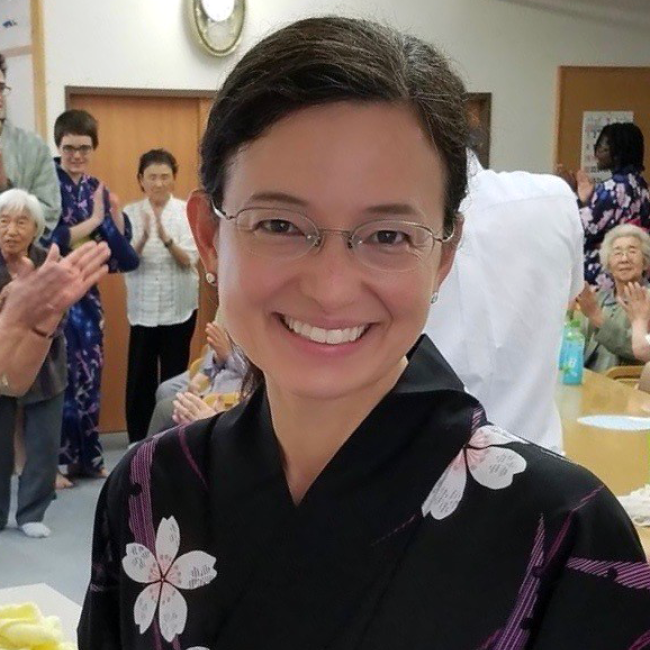
Get in touch with Chris Pilcavage, Managing Director for MIT-Japan, to get your questions answered.

